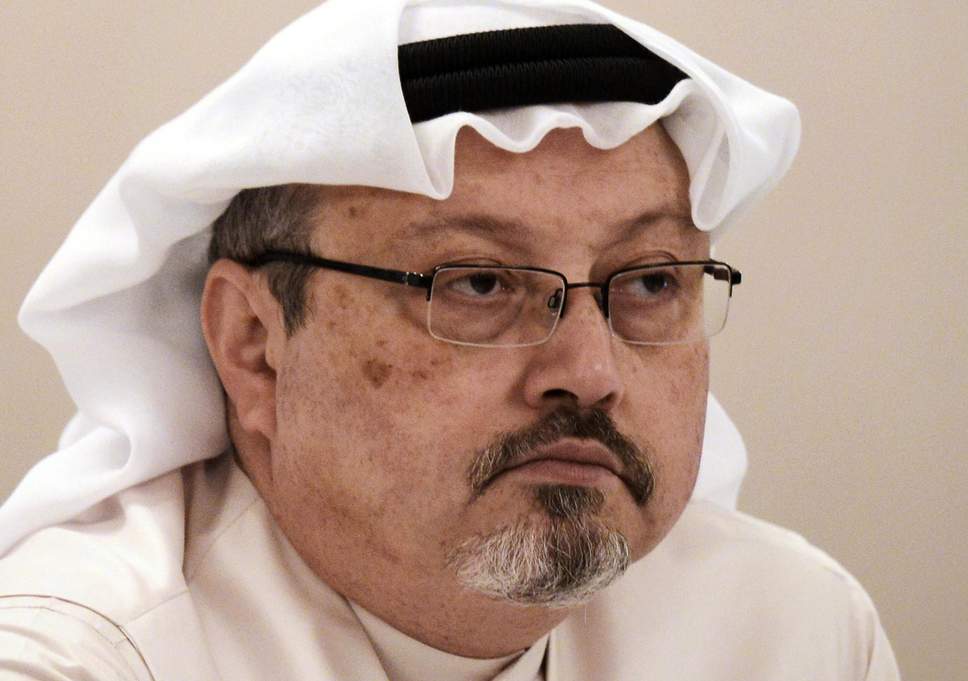By Tracy Yung, Year 12
On Tuesday the 2nd of October, Saudi journalist Jamal Khashoggi, entered the Saudi consulate in Istanbul and never emerged again. Formerly a journalist for Saudi Arabia and later an advisor to Saudi Arabia’s former intelligence chief, he followed important political events like the rise of Osama bin Laden, the first Gulf War, and the Arab Spring uprisings in 2011. In 2017, a year before his death, after falling out of favor for writing articles critical of the Saudi state, he left Saudi Arabia for the U.S., where he continued to write critically of his government, particularly the Crown Prince’s new reforms. In his first column for the Washington Post, he spoke out about how he and several others had fled Saudi Arabia after Crown Prince Mohammed bin Salman’s crackdown on political dissidents. “I have left my home, my family and my job, and I am raising my voice,” he wrote. “To do otherwise would betray those who languish in prison. I can speak when so many cannot. I want you to know that Saudi Arabia has not always been as it is now. We Saudis deserve better.”
On October 2nd, he had entered the consulate to obtain documents for his upcoming marriage. His fiancée, Hatice Cengiz, had waited outside for him. According to her, he had been unconcerned about the visit. “He did not believe that something bad could happen on Turkish soil,” she wrote in the Washington Post. She waited ten hours for him outside the consulate, but he never returned.
Immediately after news of his disappearance spread, Turkish investigators came out with evidence that he had been killed inside the consulate as part of a premeditated plot. It is believed that a fifteen-member hit squad ordered by the Crown Prince, including a doctor specializing in post-mortems and man from Prince’s own entourage, had strangled him immediately after he had entered the consulate and dismembered and disposed of his body, which has not yet been found. Turkish investigators also claim to have audio evidence of his murder, and have accused the Saudi government of directing and covering up the murder, saying that the order had come from “the highest levels of the Saudi government.”
Initially, the Saudi government denied these allegations, claiming that Khashoggi was still alive and that he had actually exited the consulate. However, under increasing pressure, they altered their story, first claiming that he had died in a “fistfight” inside the consulate but later changing it again to admit that his murder had been pre-meditated and he had been killed as part of a “rogue operation” and promising that they would punish those involved. The Saudi government has since arrested 18 individuals in association with the murder.
However, despite the overwhelming evidence linking Khashoggi’s death to the Saudi government and the Crown Prince and demands for accountability from the international community, one person, in particular, appears to be unconvinced. President Trump’s response to the entire investigation has been alarming, to say the least. While he initially expressed concern for the investigation and vowed to get to the truth, he quickly changed to defending the Saudi government and suggesting that “rogue killers” were responsible. He even compared the case to the investigation of Brett Kavanagh, calling it another “guilty until proven innocent” case. He has also been reluctant about discussing repercussions, particularly the idea of stopping arms sales to Saudi Arabia. As the perhaps most important figure in the Western world, he, perhaps more than anyone, has a responsibility and an obligation to uphold justice and the values America is known for, and the international community has been looking to him to do condemn Saudi Arabia and make sure those who are responsible are held accountable for their heinous crime and. Instead, however, President Trump’s response has been to delay action and even defend the Saudi government, and many have criticized him for allowing personal business ties and economic interests to sway him from pursuing justice.
Hatice Cengiz, the fiancée of Khashoggi, has expressed disappointment the Trump administration for not doing enough. “The Trump administration has taken a position that is devoid of moral foundation. Some have approached this through the cynical prism of self-interest — statements framed by fear and cowardice; by the fear of upsetting deals or economic ties.” She wrote in the Washington Post.



